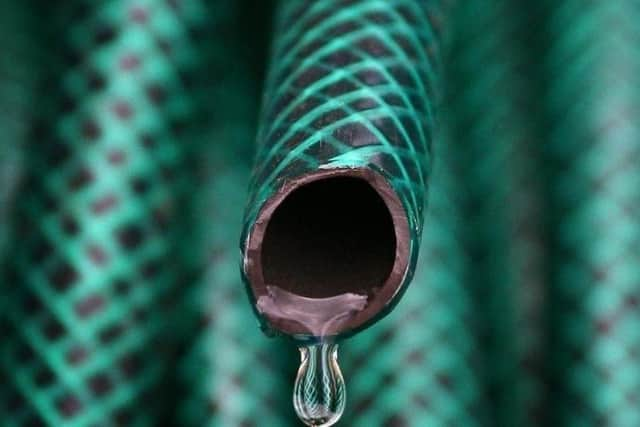Why Yorkshire Water needs to take action on leaks and upgrade the infrastructure - Jayne Dowle
When we bought our house six years ago, somehow the surveyor managed to miss the fact that it appears to have been built, 100 years ago, straight on top of an ancient well.
How he failed to see it - or smell it - I will never know; even in the driest conditions, like now, it is impossible to sweep up all the water that collects. Following the lead of my next-door neighbour, a pragmatic Scottish veterinary surgeon who has lived with a stream running through her basement for years, I’ve learned to live with it.
Advertisement
Hide AdAdvertisement
Hide Ad“No point wasting thousands on tanking it out and pumps,” she told me. “Until Yorkshire Water does something about the water that comes up out of the ground and floods the road, you won’t get rid of it.”


Because I’m a sad history nerd, I did some digging, but not in the cellar, or I fear the entire house might collapse.
On some old maps I discovered that yes, in about 1830, there is a well exactly beneath my kitchen. The whole immediate area, in our semi-rural Barnsley village, was full of them, apparently.
This explains why every time it actually rains, water runs straight off the field and across the road, down the steps (we live on a hill) and heads straight for our front door. We’ve fitted a system of drains, but the only way to cope these days - given the extremes of all kinds of weather - is to lift off the manhole lid and let the torrent cascade straight to the sewers.
Advertisement
Hide AdAdvertisement
Hide AdNothing can be done, said the man from Yorkshire Water when we called them out and asked them for their opinion. And here I am, paying £22 a month to our regional utility company for plumbing and drainage cover, mostly because I fear that one day the drains won’t be able to take any more and I’m going to need an ark.
So, yes, I do totally agree that whilst we must respect the hosepipe ban, Yorkshire Water also should look to its own practices.
According to the Environment Agency, UK water companies lost 2.3bn litres per day to leaks between April 2020 to March 2021, up from 2.2bn in the previous year.
In England, the number of leaks fell by 36 per cent between 1994 and 2000, according to the regulator, Ofwat, but since then, have only fallen by another 8 per cent.
Advertisement
Hide AdAdvertisement
Hide AdI’m no hydrologist, but I’d say that this points to a lack of investment and far too much demand on the creaking system.
Yorkshire Water, with more than five million customers, suffered 130 litres of leakage per property every day in 2020-2021. That’s almost the equivalent of a daily 10-minute power shower, which will typically use 150 litres, according to Waterwise, a non-profit organisation that helps consumers save water.
Our regional water company says it has invested around £500m in improvements and reported a 14 per cent decrease in water lost through bursts and leaks over the last five years.
Although water companies cannot put all the onus on their customers when they have much housekeeping to do themselves, it’s important to see the biggest picture – failing and inadequate infrastructure.
Advertisement
Hide AdAdvertisement
Hide AdThere are 216,000 miles of water pipes in the UK, and some of them date back to the 19th century, according to Water UK, which campaigns for better water policies.
With millions of new houses built in the last hundred years or so, it’s obvious that much of this pipework is no longer going to be fit for purpose.
We also don’t have enough reservoirs to meet our needs. The last new reservoir in England, at Carsington in Derbyshire, was built in 1992. Since then the UK population has risen by a staggering 10 million or so people.
Everything is going up, including average temperatures, which have already smashed all UK records in July this year, with the hottest day ever reaching 40-plus degrees C. If you’ve seen a reservoir recently, as I did when I drove across the Woodhead Pass a couple of weeks ago, you will see how this manifests; low water levels, cracked and parched earth, eerie shapes appearing out of what little water does remain.
Advertisement
Hide AdAdvertisement
Hide AdMeanwhile, on the home front, I’m bracing for the sneaky tales about neighbours telling on neighbours and whispers of midnight sorties with the sprinkler. That said, most of us in Yorkshire will no doubt try to do our bit in coming weeks to conserve our ever more precious water supplies.
Whilst we all must come to terms with the life-altering realisation that climate change is definitely happening, it is not good enough for those with the responsibility of keeping water on tap to wash their hands of the problems that lie beneath.